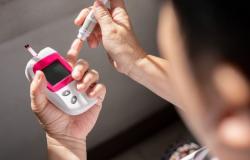Rwanda’s health ministry on Friday confirmed the first outbreak of the Marburg virus in the country, with eight deaths reported.
This deadly virus, related to Ebola and with a case fatality rate of up to 88%, is transmitted to humans by fruit bats and through contact with infected bodily fluids.
The ministry advised the public to avoid close contact with people showing symptoms, such as fever, headache, muscle pain, vomiting and diarrhea.
In response, The government is intensifying contact tracing, surveillance and testing, and urging citizens to maintain good hygiene practices, including frequent hand washing.
Residents of the region have expressed deep concern about the virus.
“If the virus spreads, it will affect us as people, it will kill us like Covid 19 and we may even return to a state of lockdown. We may even return to confinement.” said local resident Jackie Kampire.
Eric, who works in the hotel industry, also shares his concerns:“With the emergence of new diseases from neighboring countries, we need proactive measures to preserve public health. The risk of transmission is a daily reality for those of us who are in contact with tourists.”he explained.
As Rwanda faces this unprecedented situation, the urgency for awareness and protective measures continues to grow.
“In the country, one of the first people tested was from one of the universities in Kigali. The patient is currently in an intensive care unit. Many cases have been studied and he was found to be positive. From there, we did contact tracing and noticed that some health care providers were already showing symptoms.” said Sabin Nsanzimana, Minister of Health in Rwanda.
The Rwandan Ministry of Health has issued guidelines which state that patients should not receive visitors for the next 14 days.
A report by Diana Iriza, Africanews correspondent in Rwanda.






